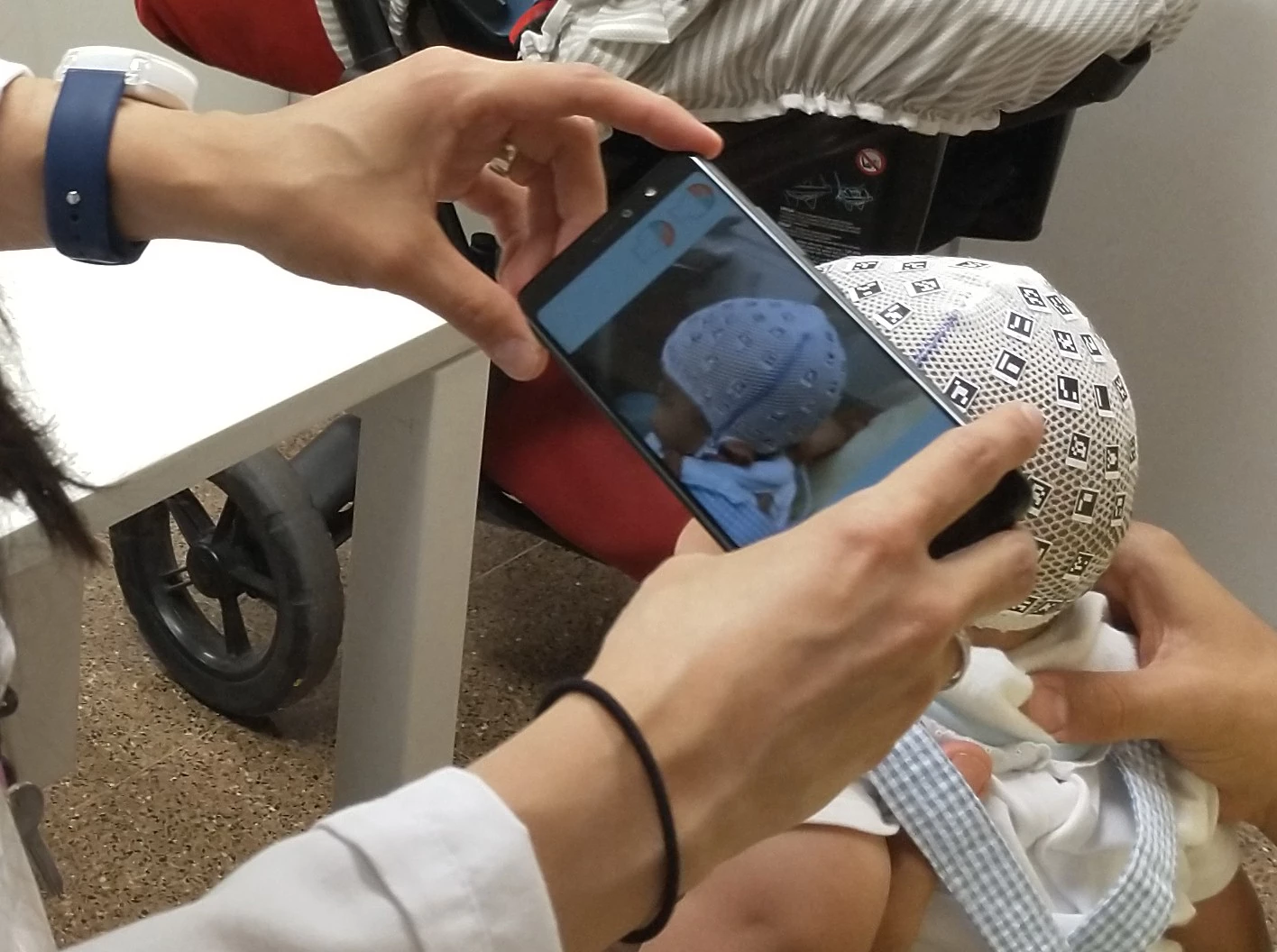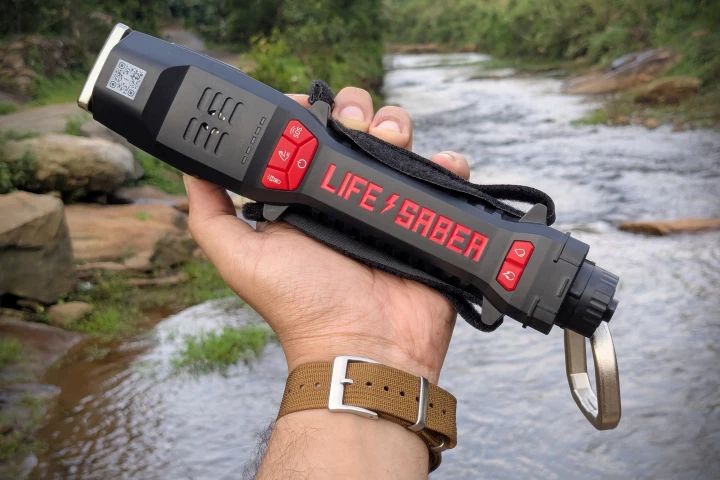It's not uncommon for babies to be born with irregularly-shaped craniums. A new smartphone-based system has been designed to analyze those li'l noggins, sparing infants exposure to potentially-harmful radiation.
Currently, in order to ascertain the extent of a cranium deformation, pediatricians sometimes utilize computerized tomography (CT) or magnetic resonance imaging (MRI). While both techniques are useful for getting a complete and exact picture of the situation, they also subject the infants' brains to what could be harmful doses of radiation.
Due to this drawback, CT and MRI are typically only used in the most severe of cases. The rest of the time, measuring instruments such as callipers and tapes are used. While neither approach is harmful, they're also less accurate.
That's where Photomedas comes in.
Designed by scientists at Spain's Valencia Polytechnic University, the system consists of a smartphone app along with a skull cap that's covered in coded markers. As the newborn to 12-month-old baby wears the cap, the app is used to shoot a video of their head from all angles. That recording is then utilized to construct a full 3D computer model of the cranium, based on the relative location of the various markers.
"Photomedas entails zero inconveniences and zero radiation for infants," says the university's Prof. José Luis Lerma. "It is a non-invasive solution that is reliable and easy to use, which offers results that are 100-percent reliable."
A paper on the research was recently published in the journal Measurement.
Source: Ruvid




